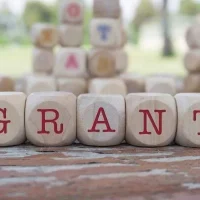Deadline: 23-Sep-21
European Commission has announced the proposals for Research Infrastructures Services for a Sustainable and Resilient Agriculture.
Scope
This topic aims at integrating and providing trans-national and/or virtual access to a complementary and interdisciplinary research infrastructures services to support R&I in view of achieving a sustainable and resilient agriculture and support agro-ecological transitions, in line with the One-Health approach.
This approach appears to be particularly relevant to provide evidence to restore biodiversity, increase efficiency in the use of resources and prevent future crises. Research infrastructures should integrate, customise and offer a wide range of services to support agricultural research also in relation with agroforestry, aquaculture, horticulture, husbandry and pastoralism, taking into account the value chain, social and behavioural aspects and possibly human and animal nutrition dimensions.
Funding Information
Grant amount is equal to or greater than EUR 500 000 except for:
- public bodies (entities established as a public body under national law, including local, regional or national authorities) or international organisations; and
- cases where the individual requested grant amount is not more than EUR 60 000 (lowvalue grant).
Expected Outcomes
Project results are expected to contribute to all the following expected outcomes:
- provision of innovative, customised and efficient RI services enhancing and increasing society’s long-term and consistent problem-solving capacity and evidence-based policy making for resilient and sustainable agriculture systems and its nexus with environment, health and food security, including a better understanding of socio-economic implications;
- wider understanding of the main threats (e.g.: emerging pests and diseases, antimicrobial resistance, climate change;) and socio-economic benefits (e.g.: high quality, safe, accessible and affordable food; improved human and animal wellbeing; resilience of local communities;) of a systemic approach to sustainable and resilient agriculture and agroecological transition;
- higher levels of integration between RIs services to better support the development of sustainable agroecological systems for a healthy planet as well as the protection and preservation of natural resources and biodiversity under changing climate conditions;
- wider catalogues of RI services and capacities enabling researchers to access, generate, share, analyse and interpret various and heterogeneous factors influencing agro-ecological systems and thus paving the way to ambitious and sustainable advancements in the field and foster trans-disciplinarity;
- strengthened climate-change resilience, sustainability and the development of smart innovation in agriculture for sustainable rural transformation;
- effective support to the Green Deal objectives, the One Planet Summit’s commitments, the implementation of the Farm to Fork strategy and enhanced contribution to related SDGs, notably poverty, hunger, ecosystems’ sustainability and climate action.
Eligibility Criteria
- Any legal entity, regardless of its place of establishment, including legal entities from non-associated third countries or international organisations (including international European research organisations) is eligible to participate (whether it is eligible for funding or not), provided that the conditions laid down in the Horizon Europe Regulation have been met, along with any other conditions laid down in the specific call topic.
- A ‘legal entity’ means any natural or legal person created and recognised as such under national law, EU law or international law, which has legal personality and which may, acting in its own name, exercise rights and be subject to obligations, or an entity without legal personality.
- To be eligible for funding, applicants must be established in one of the eligible countries, i.e:
- the Member States of the European Union, including their outermost regions;
- the Overseas Countries and Territories (OCTs) linked to the Member States;
- eligible non-EU countries:
- countries associated to Horizon Europe
- low- and middle-income countries
For more information, visit https://bit.ly/2UQd2pP






![Call for Applications: “Voices in Motion” Program [Sri Lanka] - fundsforNGOs Call for Applications: “Voices in Motion” Program [Sri Lanka]](https://www2.fundsforngos.org/wp-content/uploads/2023/04/dance-200x200.jpg)


































